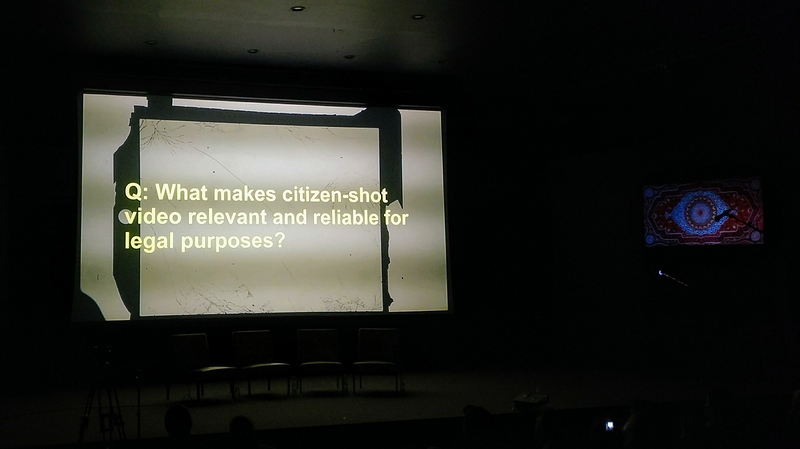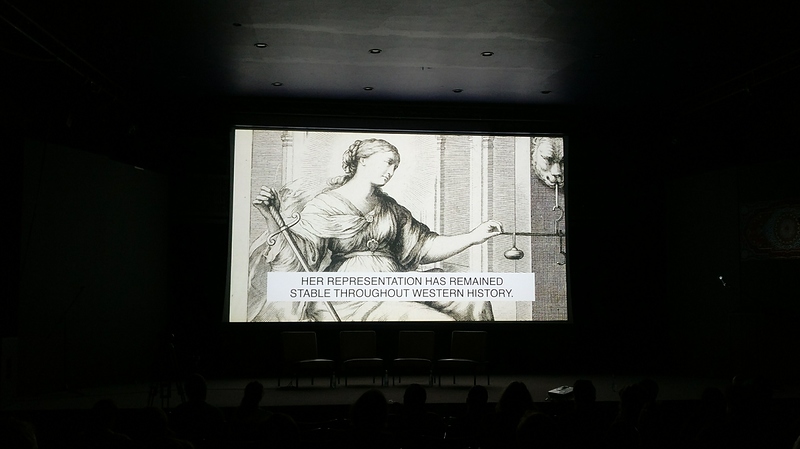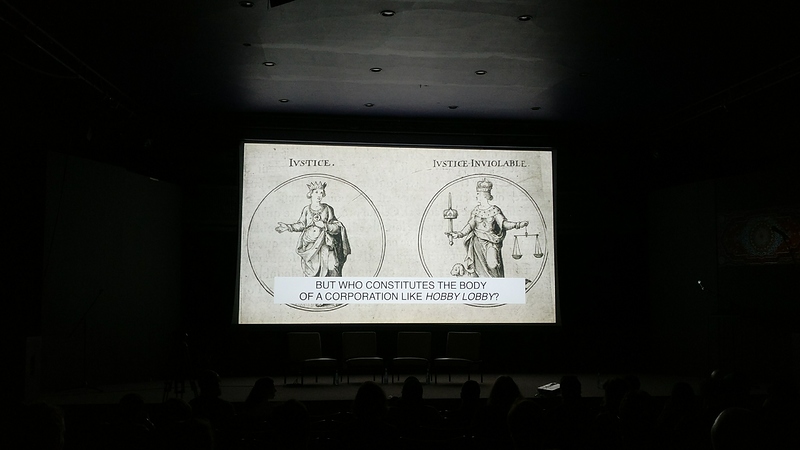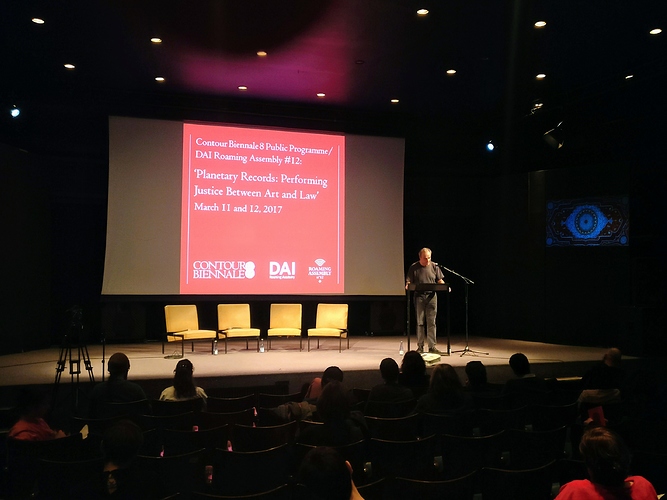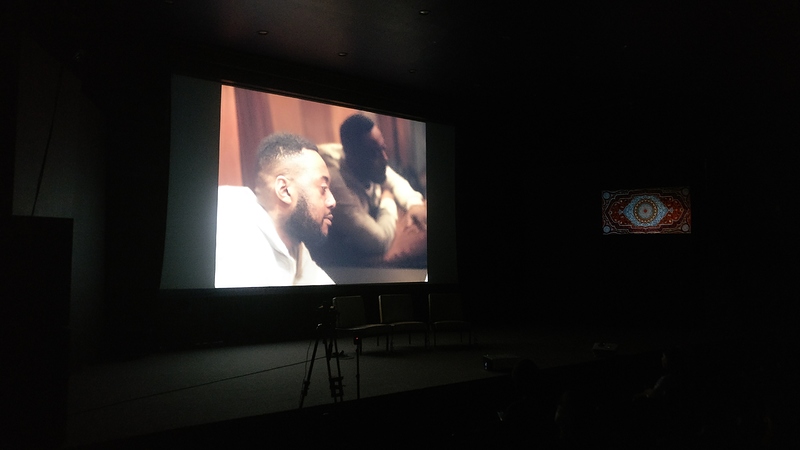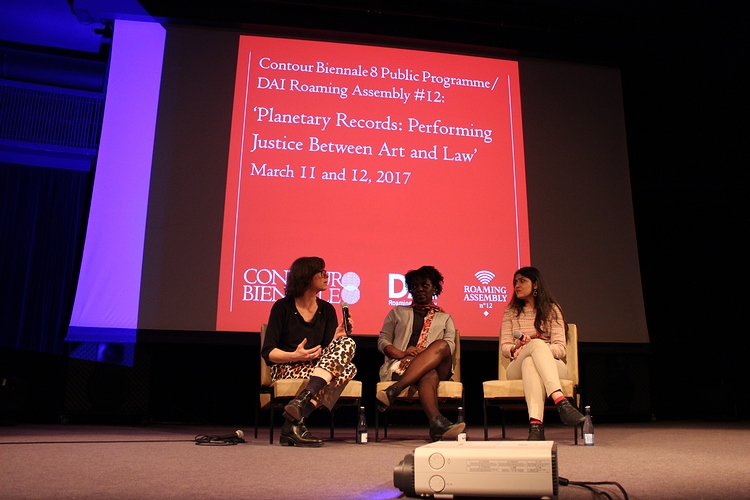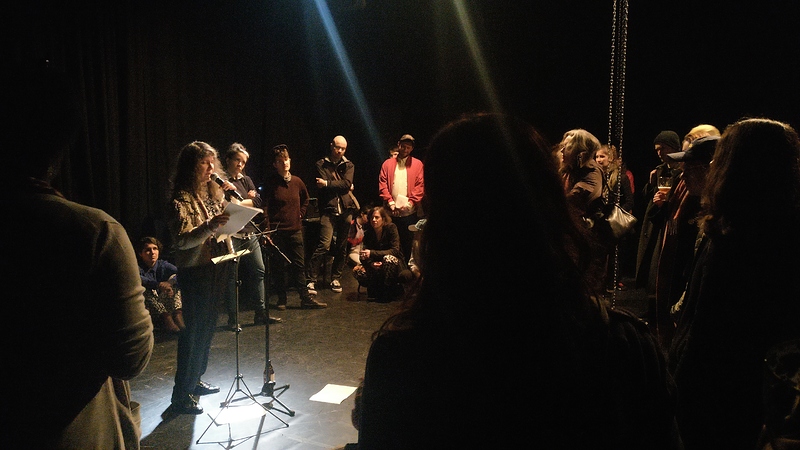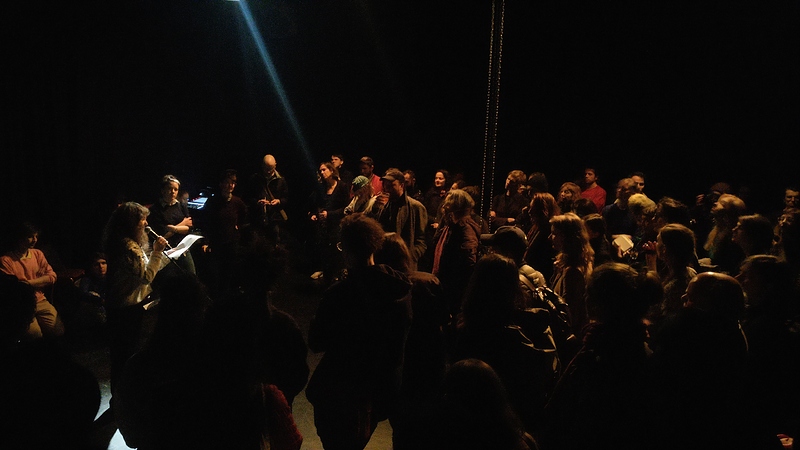The film follows the story of two rappers who wrote a piece of music following the London Riots of 2011. Yet it has a number of additional protagonists, who all bring with them varying contexts and knowledges. The film appears to operate within a similar logic to other works of van Oldenborgh, where an exchange between real life encounters and scripted performance become increasingly intertwined and blurred. Yet the strength of this process is one that operates around questions of representation. What is the place of duration and framing in the process of scripting real life encounters and re-performing them? How does improvisation operate under such circumstances?
These questions are also more overtly taken up in the film, when one individual asks another how they are to manage situations within which their ‘presence as a black woman’ is instantly measured, located and subsequently viewed as symbolic. Here, we see a film that historicises and politicises the various racial uprisings existing within British rap music juxtaposed with a background of resistance and revolutionary vocabulary such as ‘DISRUPT’, ‘RIOTS’ and ‘REVOLT’ - which appear taped to the walls of a London subway station.
Moreover, the film activates various aspects regarding security, authority and movement at the convergence of private and public spaces like one of the filming locations — the subway. This is made possible through the varying characters, their backgrounds, and a filmic device of decentralising the role of a single main character. In this way, questions of race and visibility in public space become the main rigour, through which the medium of film contributes a particular inference on surveillance. This is also brought up in the film, and mirrored again in van Oldenborgh’s process of cutting, editing and scripting actual events. Yet, this notion of publicness has an optimistic strength in a scene where one of the rappers talks about how he wants to write something instructional for future use rather than to write a thesis that simply sits on the shelf. He differentiates between self-realisation and music that inspires revolution instead of just thinking about revolution.
The music accompanying the film is by Owls, produced by Reveal.
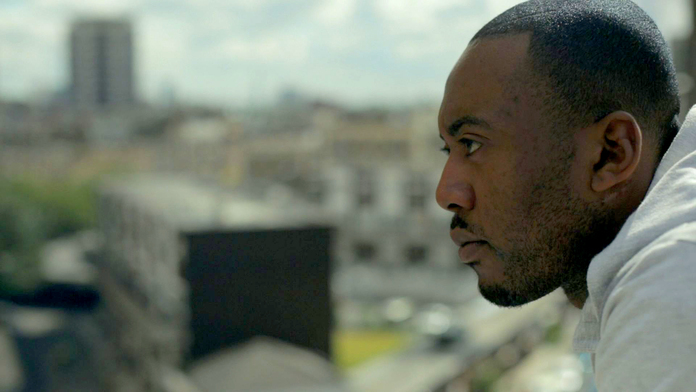
Wendelein Van Oldenborgh From Left to Night, film still, 2015
